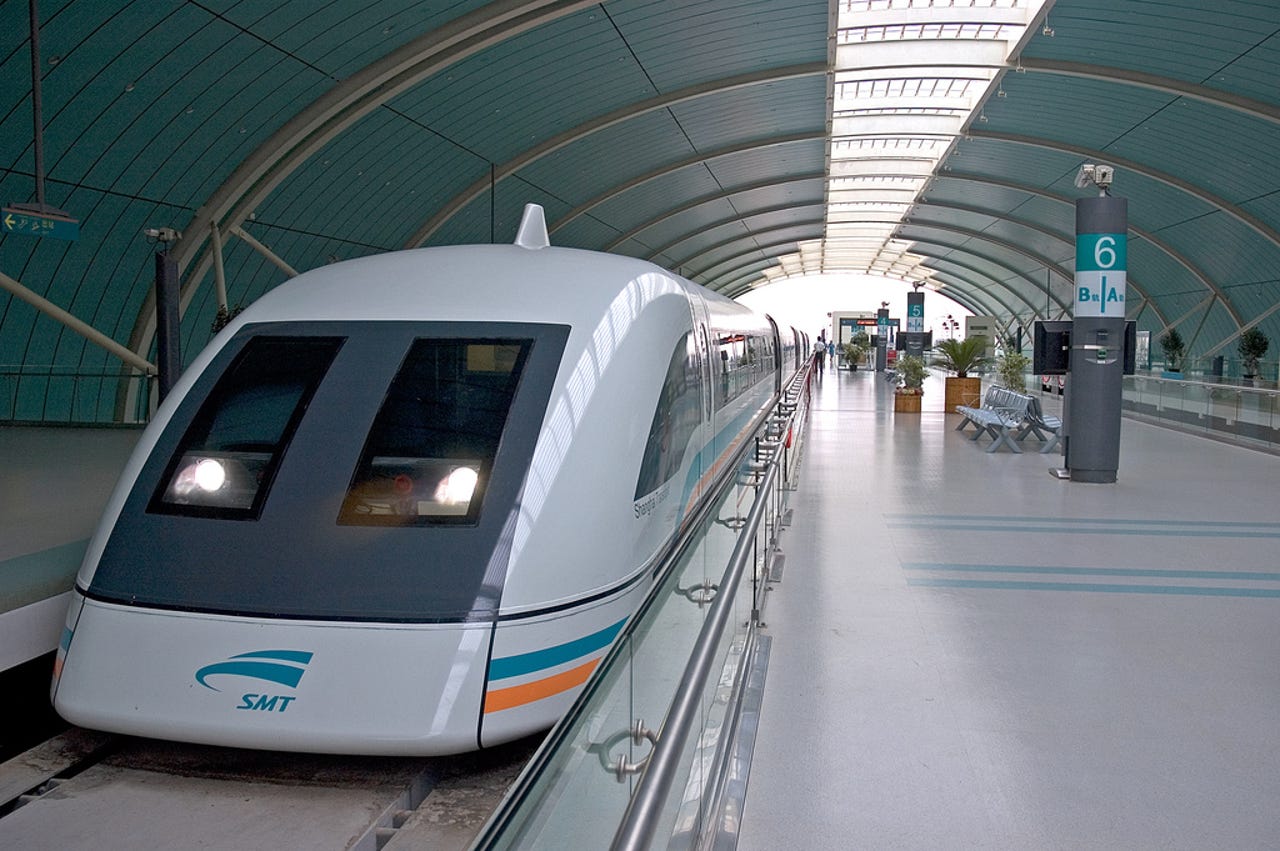Innovation
Japan really wants the U.S. to buy its maglev train technology
Japan is offering to loan the U.S. half the cost of a maglev train from D.C. to Baltimore.


There are a handful of these trains already in use and under development. And Japan really wants the United States to give it a try.
So much so that Japan says it will loan the United States half the cost of installing the maglev technology of the Central Japan Railway Co. between Washington, D.C. and Baltimore, about $8 billion, according to Japan's Asahi Shimbun newspaper.
The upgrade would provide a quick trip for commuters who live in one city and work in the other -- there's about 37 miles between the two cities. The current commuter train, known as the MARC, takes about an hour to get from one city to the other, if there are no delays. A maglev train would cut that travel time to 15 minutes and would tie the economies of the neighboring cities even closer together.
And it's not hard to see why Japan has a strong interest in exporting the technology. The United States is a large and spread out country lacking in high-speed train connections between its cities. If Japan can convince the U.S. that maglev is worth the investment it would be a big boost for Japanese businesses. As the Baltimore Sun put it in an editorial, "Japan sees maglev as a crucial export technology, and the north-east corridor of the United States presents a marquee opportunity to demonstrate its value."
But how likely is it that the U.S. -- which only has one train which can be truly be considered "high speed"? One private company, The Northeast Maglev, is the main players behind a push for maglev, and has the support of some high-profile business and political leader. It has also raised $50 million toward the project.
Even so, the challenges are vast: acquiring the land to build, getting local and federal government on board, and raising the rest of the money. Even if those are realized there's the question of whether commuters would stomach the high cost of a ticket on a maglev train to save 45 minutes. A roundtrip ticket on the high-speed Acela train between the two cities already starts at $84 and takes 28 minutes compared to a $14 roundtrip ticket on the MARC. Would there be enough demand for a ticket that's easy to imagine costing more than $100 roundtrip, when other options are already available? A fast train traveling such a short distance wouldn't make much economic sense. That's why The Northeast Maglev's ultimate goal is to run from D.C. to New York City. But that would take many more billions of dollars and tricky planning in the dense corridor.
With so many hurdles it seems unlikely you'll see maglev trains, at least not anytime soon. But you can't fault Japan for trying to make it a reality.
Photo: Flickr/chill
This post was originally published on Smartplanet.com